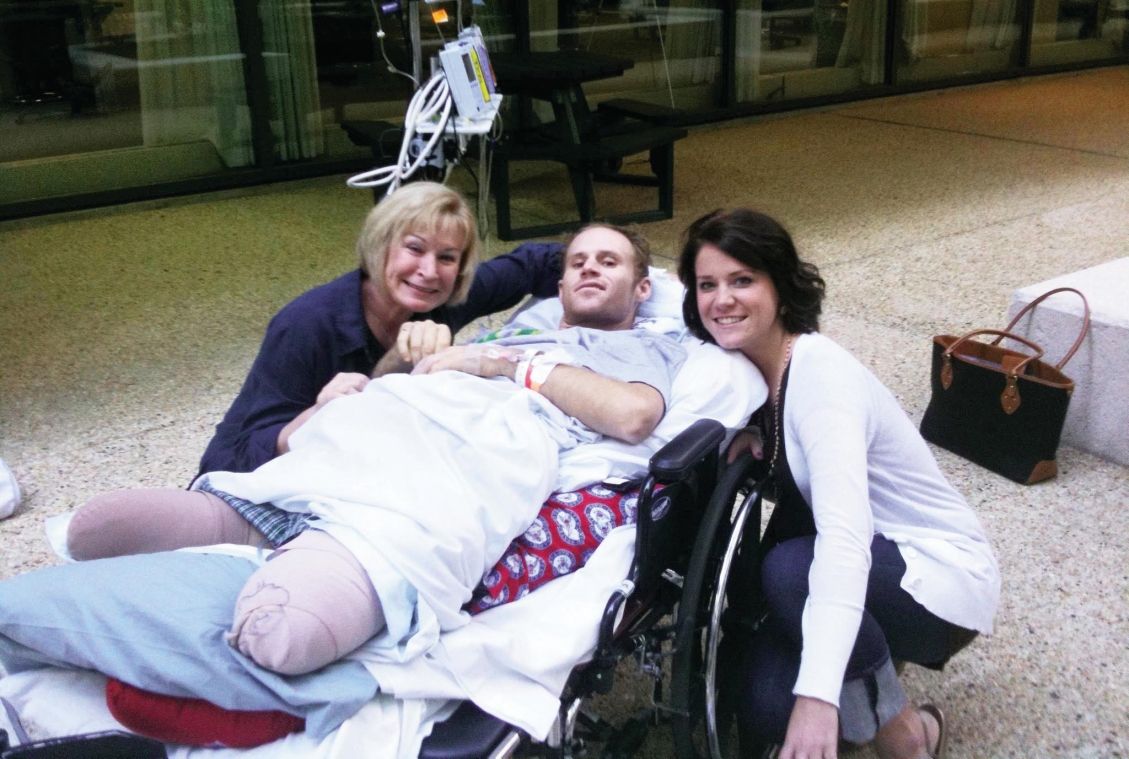
NEW MISSION: Dan with his mother and sister at Bethesda Naval Hospital; "I had my network of family and friends. That's an external factor that's really important. It was a combination of internal and external sources of motivation."
thought about that, whether you have knees or not. I thought about missing a leg, and that it's different if you're missing one leg above the knee, below the knee, or through the hip (which is the worst). But I'm missing both legs and both knees. That's another level of complexity entirely.
This was kind of a ground zero moment for me. I was 29 years old. I just had been a platoon commander, feeling not invincible, but very confident. We trained to go to war and then this happened. I thought the worst thing that could happen to me as a platoon commander would be that one of my guys dies in combat, and I would never get over that. I would second guess all the decisions I had made that led up to that, for the rest of my life. If something happened to me, I figured it would be death, right? But, to survive and be maimed for the rest of my life and disabled, eligible for a handicap placard, those details never occurred to me.
That’s the situation I faced in Fall 2009 and into 2010, as I started to go through surgeries.

"Realize that anything you can do now to improve the situation is important. You can't act in the future, you can only act right now. So, now's the time to start working."
FS: When the reality hit that you had lost your legs, what helped you get through it and keep going?
DC: It's a combination of things. I tend to be future-oriented. I tend to set goals, although those goals sometimes need to be adjust
ed. My initial goal was, “I’m going to get prosthetic legs and be an operational SEAL again”. That goal lifted me up, gave me some positivity, and that helped. A couple of months later, I got fitted for the prosthetic legs. The prosthetic knees are heavy and cumbersome. You can’t feel the ground, they bend underneath you. I didn’t have a lot of strength because of atrophy. I realized I was exhausted at the end of the day of just two hours of physical therapy. I wondered how I was going to walk on them. It became apparent to me, and seems so obvious now, why would I have a goal of becoming an operational SEAL again? But in the beginning, it lifted me up. Then, I realized this wasn’t a realistic goal. Goals need to be realistic, although they may be hard to achieve and very long-term or far away. Once it was clear to me that it was not going to happen, I set new goals. I wanted to walk without a cane, nor use a wheelchair, unless it was absolutely necessary, and then start to run. Those were my goals that really got me going forward. I had to think about narrowing the focus. I told myself “Look, you’re far away from your goals, but you have to have faith and hope that this can be achieved”. I hoped that everything I was doing then, including my physical therapy, was feeding into walking, which feeds into running. I took it day by day. I fell into a routine and habit that created